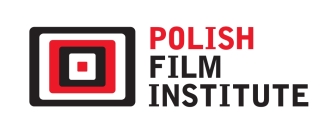Melange of History, Politics and Lyricism - A Contribution to the Analysis of Alexander Kluge’s “Patriot”
Abstract
The author analyses the film Patriot (Die Patriotin, 1979), made by the German director Alexander Kluge, one of the signatories of the manifesto from Oberhausen, probably the most famous representative of that generation. Created partly on the basis of the found footage method, the work, which is a compilation of the narrative and documentary form, offers an insight into Kluge’s essayistic strategy, and in a broader sense it is an example of the exploration of forms of expression that can turn into a vehicle of hard-to-communicate historical content on the grounds of the New German Cinema, especially with regard to the dark German history, full of imperial gestures. The author assumes that the narrative of Patriot is spread between three contexts – history, politics and lyricism, which are not only reference points in the process of interpretation, but also interpenetrating elements generating meaning.
Keywords:
Alexander Kluge, kino niemieckie, film essayReferences
Gwóźdź, Andrzej. „Po obydwu stronach muru: kinematografie niemieckie.” In Historia kina. Tom 3. Kino epoki nowofalowej, edited by Tadeusz Lubelski, Iwona Sowińska, Rafał Syska, s. 701. Kraków: Universitas, 2015.
Google Scholar
Kluge, Alexander. Die Patriotin, Frankfurt am Main: Zweitausendeins, 1979.
Google Scholar
Wach, Margarete. „Hieronymus im Mediengehäuse der Geschichte. Alexander Kluges ‘Baustellen-Artistik’. Literatur, Film, Fernseher und Theorie.” Filmdienst, February 1, 2007.
Google Scholar
Authors
Ewa Fiukkwartalnik.filmowy@ispan.pl
independent researcher Poland
Filmoznawczyni, autorka książek Inicjacje, tożsamość, pamięć. Kino niemieckie na przełomie wieków (2012) oraz Obrazo-światy, dźwięko-przestrzenie. Kino Toma Tykwera (2016), jak również artykułów dotyczących filmu i kina (publikowała m.in. w „Kulturze Popularnej”, „Kwartalniku Filmowym”, „Kinie” oraz tomach zbiorowych). Autorka przekładów z języka niemieckiego i polskiego. Zainteresowania naukowe: film niemiecki i europejski, antropologia filmu, analiza filmu. Obecnie przygotowuje autorską publikację dotyczącą kina transnarodowego, postkolonialnego, podejmującego temat (post)migracji.
Statistics
Abstract views: 128PDF downloads: 37
License
Copyright (c) 2018 Ewa Fiuk

This work is licensed under a Creative Commons Attribution 4.0 International License.
The author grants the publisher a royalty-free non-exclusive licence (CC BY 4.0) to use the article in Kwartalnik Filmowy, retains full copyright, and agrees to identify the work as first having been published in Kwartalnik Filmowy should it be published or used again (download licence agreement). The journal is published under the CC BY 4.0 licence. By submitting an article, the author agrees to make it available under this licence.
In issues from 105-106 (2019) to 119 (2022) all articles were published under the CC BY-NC-ND 4.0 licence. During this period the authors granted a royalty-free non-exclusive licence (CC BY-ND 4.0) to use their article in „Kwartalnik Filmowy”, retained full copyright, and agreed to identify the work as first having been published in our journal should it be published or used again.
Most read articles by the same author(s)
- Ewa Fiuk, Transgression and Discrimination: Artificial Women in Science-Fiction Cinema , Kwartalnik Filmowy: No. 110 (2020): Beyond Human Being
- Ewa Fiuk, Spaces of Migration. The Case of German Cinema , Kwartalnik Filmowy: No. 107 (2019): Journey, (E)migration, Pilgrimage
- Ewa Fiuk, A Guinean on Alexanderplatz, or the Possibility of Contesting the Dominant Narrative , Kwartalnik Filmowy: No. 114 (2021): Contamination, Dirt, Flaw
- Ewa Fiuk, The Ennobling Cinema of the Peripheries , Kwartalnik Filmowy: No. 112 (2020): Polish Documentary, Polish Animation
- Ewa Fiuk, A Shot from the Inside of Things: The Case of “Purple Sea” by Amel Alzakout and Khaled Abdulwahed , Kwartalnik Filmowy: No. 118 (2022): One Take
- Ewa Fiuk, Four Film Histories with the City in the Background. On the Berlin Face of Transformation in German Cinema , Kwartalnik Filmowy: No. 105-106 (2019): Cinema and Political Transformation
- Ewa Fiuk, Presumed Innocence , Kwartalnik Filmowy: No. 105-106 (2019): Cinema and Political Transformation
- Ewa Fiuk, “Berlin School” – Postulate of the Film as an Art, or “The Longing for Saving the Story” , Kwartalnik Filmowy: No. 101-102 (2018): European Cinema of 21st Century
- Ewa Fiuk, Table of Contents , Kwartalnik Filmowy: No. 125 (2024): Cinema as a Memory Machine
- Ewa Fiuk, We Are All Migrants , Kwartalnik Filmowy: No. 104 (2018): Essay, Found Footage, Compilation Film











